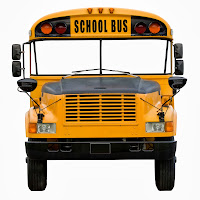
In 2010, the U.S. Consumer Product Safety Commission (CPSC) estimated that hospital emergency rooms across the country treated 251,700 toy-related injuries. And, 72% of those injuries were to those under the age of 15.
“In order to spend the holidays with family and friends, instead of in the emergency room, we must be diligent in making sure our children are protected,” said Hugh R. Parry, president and CEO of Prevent Blindness America. “We all need to make a conscious effort to think about the gifts we are buying to make sure they are appropriate for every child’s age and development level.”
Prevent Blindness America has declared December as Safe Toys and Gifts Month in an effort to help adults make the best decisions on how to keep the holiday season joyful for everyone. The group is offering toy-buying and gift-giving tips to all those planning to purchase a gift for a child this year.
Prevent Blindness America suggests:
- Make recommendations to family members and friends about gifts that you feel are appropriate for your child. Be diligent about inspecting these gifts before allowing your child to play with them.
- Inspect all toys before purchasing. Monitor toys that your child has received as gifts to make sure they are appropriate for your child’s age and developmental level.
- For younger children, avoid play sets with small magnets and make sure batteries are secured within the toy.
- Gifts of sports equipment should always be accompanied by protective gear.
- Any toy that is labeled “supervision required” must always be used in the presence of an adult. Keep toys meant for older children away from younger ones.
- Avoid toys that shoot or include parts that fly off.
- Inspect toys for sturdiness. Your child’s toys should be durable, with no sharp edges or points. The toys should also withstand impact.
- Don’t give toys with small parts to young children. If the part of a toy can fit in a toilet paper roll, the toy is not appropriate for children under the age of 3.
- Do not purchase toys with long strings or cords, especially for infants and very young children as this can become wrapped around a child’s neck.
- Always dispose of un-inflated or broken balloons immediately. According to the CPSC, more children have suffocated from them than any other type of toy.











